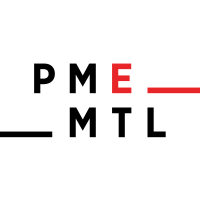A brief by John Burrascano, Industrial Commissioner. October 2, 2018
When it comes to West Island industrial real estate performance since March, 2018, I have good news and bad news.
First, the good news. The West Island industrial real estate sector performed well. Overall, its vacancy rate in the second quarter of 2018 (excluding Lachine and Ville St-Laurent), settled at 3.7%, down from 4.6% in the fourth quarter of 2017 (Colliers, 2017 & 2018). A 2018 second quarter report by CBRE says that for Montréal ‘’There was tremendous leasing activity during the last 12 months, leading to a 21.5% decline in lease availabilities since Q2 2017’’. The same report also says that in the second quarter of 2018, the industrial availability rate for Montréal decreased to a 15-year low because there was more demand for space than supply. All of this activity has caused gross asking rates to increase—for the first time, the asking gross rate has surpassed $9.00 per square foot.
Fédération des Caisses Desjardins (September 19, 2018) reports that Canada’s economic outlook remains fairly good. For the province of Québec, household spending is driving economic growth and the residential sector is doing well and contributing to the growth rate.
In terms of bad news, at the beginning of 2018, political and economic opinion and statistical evidence indicated the trend of a slowing Canadian and Québec economy between 2017 and 2019, principally due to American protectionist economic policy. This trend is re-confirmed as both the Canadian and Québec economies averaged a 3.0% gross domestic product (GDP) growth rate in 2017 compared to 2018 where growth in GDP for Canada is forecasted at 2.1% and 2.3% for the province of Québec (Fédération des Caisses Desjardins, August 22, 2018).

There are numerous indicators showing that Canadian, Québec, and world economic growth is being challenged:
- There has been a slowdown in global trade since last winter due to trade constraints by the United States and retaliatory measures taken by affected countries;
- interest rates in Canada have risen and are expected to increase further;
- high Canadian household debt is a concern;
- the price of oil has increased;
- there exists the threat of inflation;
- American monetary policy, economic protectionist measures, and the overall negative messages conveyed by the Trump administration, including questions surrounding Trump’s integrity are causing less confidence in the wider business world and may affect markets;
- problems encountered with NAFTA negotiations and resultant associated Canadian compromises;
- uncertainties surrounding Brexit contributes to dampening worldwide business activity;
- we have seen some job losses; and,
- potential real estate market corrections in Canada’s major cities.
I conclude that Canada and Québec are presently propelling forward quite nicely economically. The West Island is benefitting from the improved economic times and it shows in its very good recent industrial real estate performance. This positive performance, however, is occurring in a slowing overall economy whose present momentum is based on the corporate and consumer mindsets of the favourable economic times of the last two years. The waters may become significantly more agitated if the challenges to economic growth mentioned above are not properly dealt with causing growing economic insecurities and slowdown. In my mind, there is now some worry for the short-to-medium term health of Montréal and West Island industrial real estate demand.
----------------------------------------------------------------
Bibliography
CBRE
‘’Secondary Markets Emerging On the Rise’’. Marketview-Montréal Industrial, Q2, 2018
Colliers International
Industrial Market Report (Table). Q4, 2017 and Q2, 2018
Fédération des Caisses Desjardins
‘’Economic&Financial Outlook’’. August 22, 2018
Fédération des Caisses Desjardins
‘’Economic&Financial Outlook’’. Sept. 19, 2018
Find experts in your area
Enter your business postal code or select your area
-
Ouest-de-l'Île
1675, Transcanadienne
Bureau 301
Dorval, Québec, H9P 1J1
514 426-2888 -
Centre-Ouest
1350, rue Mazurette
Bureau 400
Montréal, Québec, H4N 1H2
514 858-1018 -
Grand Sud-Ouest
3617, rue Wellington
Montréal, Québec, H4G 1T9
514 765-7060 -
Centre-Ville
630, rue Sherbrooke Ouest
Bureau 700
Montréal, Québec, H3A 1E4
514 879-0555 -
Centre-Est
6224, rue Saint-Hubert
Montréal, Québec, H2S 2M2
514 723-0030 -
Est-de-l'Île
7305, boulevard Henri-Bourassa Est
Bureau 200
Montréal, Québec, H1E 2Z6
514 494-2606
